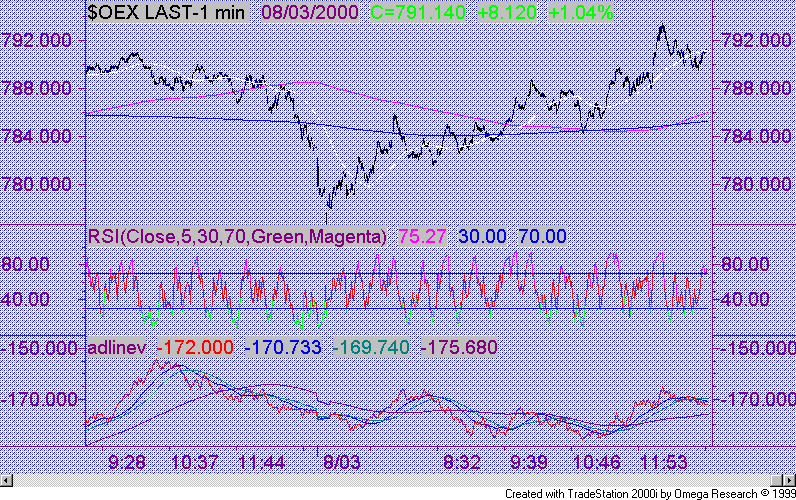Why d Foreign Stocks Go Up So Much
Post on: 30 Сентябрь, 2015 No Comment

September 20, 2007 | Comments (0)
With Tuesday’s Fed Funds rate cut of 50 basis points, stocks everywhere rocketed higher. The breadth of the market rise was as breathtaking as the size of the move. Everything moved. Everything.
Which leads to a question you might be asking yourself. OK, maybe not yet — but give me a second. This is the Federal Reserve of the United States, right? Its purpose in making the rate cut was to counter underlending among American banks — to spur economic activity.
Of the thousands of foreign stocks trading on the American exchanges, many of them have minimal operations or need to borrow in the United States. So why did they rocket higher? It’s easy to see why Nokia ( NYSE: NOK ) or Research In Motion ( Nasdaq: RIMM ) would spike — they do huge business in the United States. But why did China Mobile ( NYSE: CHL ) add $20 billion in market cap on the tail of a rate cut in the United States — in the same week the central bank of China is raising rates?
There isn’t a simple answer here.
Why you need to own foreign companies
In fact, at least part of the answer is temporary investor insanity, brought on by the thought that the Fed was addressing the financial scare brought upon by the collapse in the subprime sector in the United States. Obviously, though, empty houses in Bakersfield have nothing to do with Chinese telecommunications.
And yet, the effect of the crisis has very much to do with how American investors can profit from Chinese telecom, or Brazilian water, or Italian energy, or Papuan gold. Neither China Mobile, nor Companhia de Saneamento Basico do Estado de Sao Paulo ( NYSE: SBS ). nor Eni. nor Lihir Gold has much direct exposure to the U.S. or to the U.S. dollar.
But if you’re an American, or if your paycheck is in U.S. dollars, you do. And that’s why you need to be more aware of international investing. Because the other reason that international stocks went crazy this week is because the market expects the U.S. dollar to continue its decline in value versus other currencies. Why does the market expect this? Well, that’s what happens in a lower interest rate environment.
If you’re paid in dollars, nearly all of your currency exposure is likely in U.S. dollars. This might not seem like a big deal if you live and work in Erie. But in a time when the Federal Reserve is stepping in to spur lending in the U.S. market, you’re missing an opportunity to profit by investing overseas.
Lower rates = dropping currency
In the past five years, the dollar has done quite poorly against several currencies, including losing more than 30% of its value against the Euro. If you’re investing in companies that denominate their earnings in those currencies (and have minimal U.S. dollar exposure), these are almost like free gains.
It doesn’t need to be exotic. For example, U.S.-based investors in Canadian doughnut slinger Tim Hortons ( NYSE: THI ) have profited mightily over the past year as the greenback swooned against the loonie. And guess what? With U.S. interest rates declining, chances are that the dollar will continue to be weak.
The difference is dramatic: U.S. shareholders have seen Tim Hortons rise from US$25.15 to its current price of US$34.14. Canadian investors have seen the price go from CAD$28.00 to CAD$34.59.
In Canada, Tim Hortons shareholders have gained 24%. For U.S-based investors it was 36%. The difference? The dollar’s slide.
Now, I’m not saying that the dollar will continue to go down. What I am saying is that investors who diversify away from their home currency do themselves a huge favor by looking overseas for investments. I’m also saying that a lower interest rate environment in the United States suggests that the trend isn’t changing.
So, what now?
Since October of last year, I’ve run a service here at the Motley Fool called Global Gains . Each month my team and I scour the world for great investment opportunities at fabulous prices, and in that time we’ve just about doubled up the return of the S&P 500. We’ve gone overseas to visit dynamic international firms like China Fire & Security ( Nasdaq: CFSG ) and GigaMedia ( Nasdaq: GIGM ). and we’ve kicked the tires of hundreds of companies plying their trades around the world. The great growth stories of tomorrow are as likely to be located in Costa Rica or Israel as they are in Silicon Valley, and we aim to find them. If you’d like to come on the journey with us, a 30-day free trial is yours with my compliments.
But really, even though I can’t guarantee that the dollar will continue to go down against foreign currencies, the long slide of the greenback over the past five years has come in an environment of exceedingly low interest rates in the United States. If you think that condition will remain for some time, you have no excuse not to look across the pond for more of your investment ideas.
Rhythmatic, systematic world control. Magnetic, genetic, dement your soul. Bill Mann is the lead advisor of the Motley Fool Global Gains international investing service. He holds none of the companies mentioned in this article. GigaMedia and China Mobile are Global Gains recommendations. The Motley Fool has a disclosure policy .














